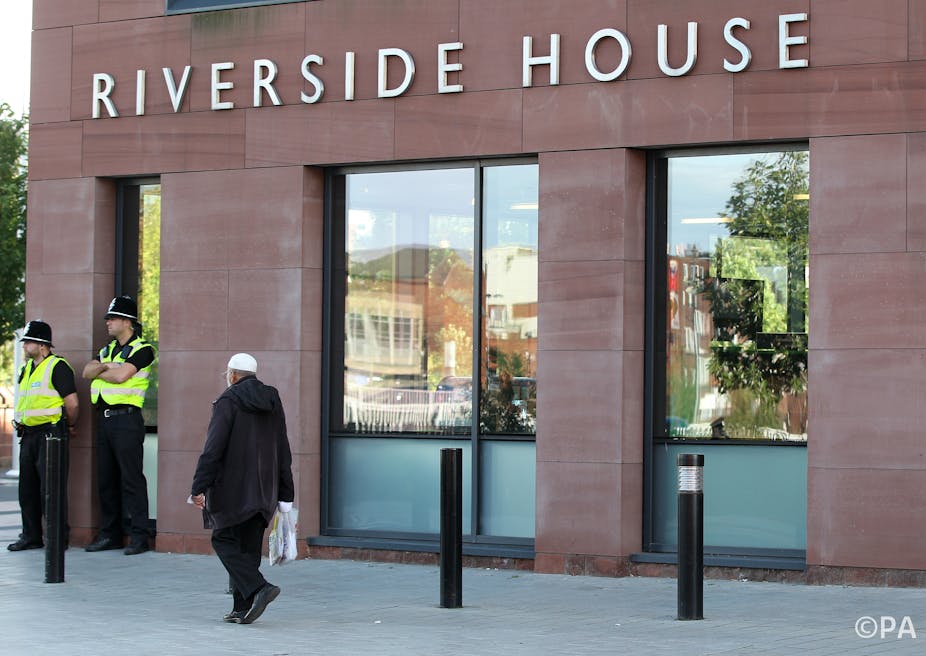The revelations from a year-long inquiry into the sexual exploitation of children in Rotherham serve to highlight issues that are both distressing and important. At the same time, they also emphasise the risks inherent in any simplistic or biased response to organised child abuse.
Data is still being produced but so far it certainly demonstrates that the particular type of sexual exploitation that took place in Rotherham involves a disproportionately large percentage of perpetrators from Pakistani, Asian or Muslim backgrounds. It also shows that this type of abuse is strongly correlated with white victims who also experience deprivation, homelessness, misuse of substances and alcohol. Many have gone missing from the family home or are in a foster home or residential care.
However, research also shows that sexual abuse and exploitation are perpetrated against children in all communities and that perpetrators come from all types of backgrounds, ethnicities and religions. The overwhelming majority of perpetrators in Britain are white men of British origin.
The important issue remains how we minimise the risks posed to children and how we stop them being vulnerable in any community. We need to ensure that relevant services receive adequate resources and that those working on the front line in these cases are trained and supported to respond appropriately. We also need to understand how we change the community and institutional cultures that have failed to protect children adequately and how we ensure that children and young people have the confidence to seek help when they need it.
To do this, we need to recognise the complexities and diversity of the phenomena surrounding child sexual abuse and exploitation. Social workers and the police need to be alert not only to the characteristics that are likely to be most common in perpetrators but also the different needs of the victims in each type of case.
Culture inevitably has an impact on both the particular nature of the abuse and exploitation perpetrated against children and on factors determining the vulnerabilities and needs of victims and survivors. My research talking to Asian women in Bradford has looked at the cultural barriers that stop victims of abuse from coming forward in cases of abuse. They spoke of how many of those affected find it difficult in part because of fears about how agencies will respond. Those fears are frequently compounded by issues arising from the impact of cultural imperatives such as those around family and community honour (izzat) and the need to avoid bringing shame (sharam) to yourself and others. These are factors which have considerable influence over how many will behave.
That said, this research also suggested that members of Asian communities are both aware of child sexual abuse and are committed to addressing it.
Like Alexis Jay’s report, conversations we had with young women – both white and Asian – in 2013 indicated that victims and survivors of child sexual abuse remain extremely critical of what they experience as the uncaring and dismissive attitudes of many police officers and statutory social workers.
Many spoke of their feelings of frustration and mistrust, in response to what they perceived as a lack of interest. They emphasise that police and social workers “need to sit down and listen to young people” and consistently highlighted several specific improvements that would have helped them.
They wanted to see specialist and flexible services from voluntary sector agencies rather than the generic statutory services currently available. They also wanted statutory services – most notably the police and social workers – to be “friendlier”. They wanted workers who they could trust and who would have time to listen to them in a non-judgemental way. They wanted to build a strong bond and work with the same person over the long term. They wanted someone who would treat them “with respect”, would “stick by” them would “do what they said they would do”.
Overall, these research conversations indicate a pressing need for the police and children’s services to improve the training of all their staff in relation to victims of child sexual exploitation and for them and others to be provided with the resources they need in order to act appropriately.

